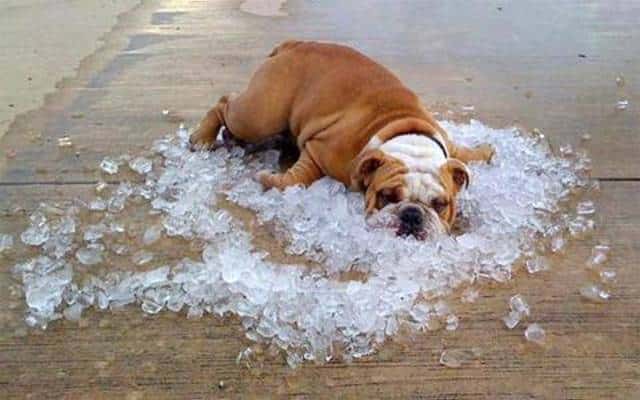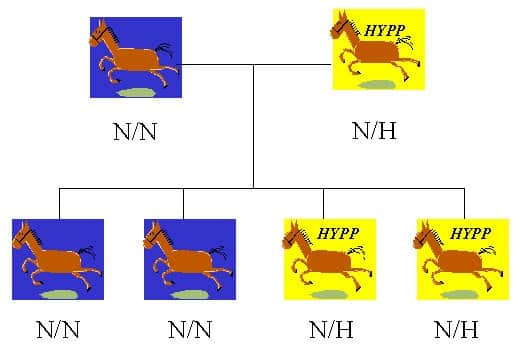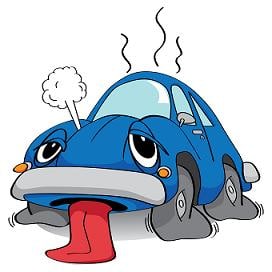 I don’t know how the weather has been in your neck of the woods, but out here in Southern California, it’s been hot: miserably hot. Hot weather is no fun for people – it’s particularly no fun for horses. By virtue of their large body size and relative lack of ability to cool themselves (they sweat, and that’s about it), horses in the heat can really be affected. That’s why it’s not a good idea to make horses strenuously exercise when it’s really hot – the combination of riding/exercise, their body size, and getting covered up in blankets and leather and such can be really dangerous.
I don’t know how the weather has been in your neck of the woods, but out here in Southern California, it’s been hot: miserably hot. Hot weather is no fun for people – it’s particularly no fun for horses. By virtue of their large body size and relative lack of ability to cool themselves (they sweat, and that’s about it), horses in the heat can really be affected. That’s why it’s not a good idea to make horses strenuously exercise when it’s really hot – the combination of riding/exercise, their body size, and getting covered up in blankets and leather and such can be really dangerous.
For some unfortunate horses, hot weather can even be potentially fatal, particularly those horses suffering from a condition called anhidrosis. Anhidrosis is the inability to sweat normally. Sweating has a number of important functions in mammals including pheromone action (ah, that irresistible scent), excreting of waste products, and keeping the surface of the skin healthy. In addition, in a relatively few mammalian species – those few include horses and humans – sweating has a very important role in body temperature regulation.
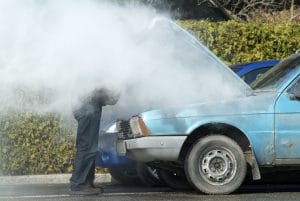 When horses don’t sweat normally they essentially can’t cool off at all. If they can’t cool off, it can lead to overheating and sometimes to heatstroke. Heatstroke is a potentially fatal condition.
When horses don’t sweat normally they essentially can’t cool off at all. If they can’t cool off, it can lead to overheating and sometimes to heatstroke. Heatstroke is a potentially fatal condition.
Here’s the problem, when it comes to anhidrosis. NOBODY KNOWS WHAT CAUSES IT. Nobody knows what causes it in horses – nobody knows what causes it in people. It can be a difficult condition to diagnose, too, especially when the condition is mild. Horses may be born with it – they may also develop it. We do know a few things.
- Thoroughbreds and Warmbloods have been shown to be more prone to have the condition.
- Horses foaled in the west or midwestern regions of the United States were said to be prone to develop the condition in one study.
- There certainly does seem to be an association with genetics, which is a problem because genetics are something that you can’t do anything about.
- Some people may assert that low levels of thyroid hormone cause anhidrosis, however, research has shown that it doesn’t, and hypothyroidism has essentially never been diagnosed in horses anyway.
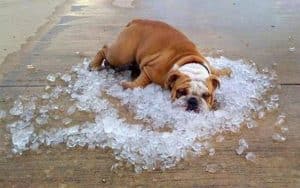 Interestingly, it’s not just the heat that causes anhidrosis. Humidity plays a big factor, too. It’s a combination of heat and humidity that causes the problem. So, for example, in California, where it gets hotter than most places in the summer, anhidrosis is actually a pretty uncommon condition. But in Florida, where it’s almost never as hot but almost always more humid, anhidrosis can be a serious problem.
Interestingly, it’s not just the heat that causes anhidrosis. Humidity plays a big factor, too. It’s a combination of heat and humidity that causes the problem. So, for example, in California, where it gets hotter than most places in the summer, anhidrosis is actually a pretty uncommon condition. But in Florida, where it’s almost never as hot but almost always more humid, anhidrosis can be a serious problem.
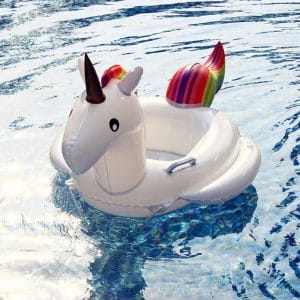 The obvious clinical sign with anhidrosis is that affected horses don’t sweat. The horse may just not sweat in a few spots – more commonly, it’s the whole horse who isn’t sweating. It’s hot, you’re perspiring (ideally), but your horse is as dry as a bone. If your horse is forced to exercise and he doesn’t sweat, his body temperature will rise (normal horse body temperature is as high as 101 degrees Fahrenheit – that’s a bit more than 38 degrees Celsius). As his body temperature rises, he’ll start to fill depressed. He won’t want to go. He won’t drink. Muscle cramping and heat exhaustion looms. If things keep up, he’ll get heat stroke. Heat stroke can occasionally be fatal.
The obvious clinical sign with anhidrosis is that affected horses don’t sweat. The horse may just not sweat in a few spots – more commonly, it’s the whole horse who isn’t sweating. It’s hot, you’re perspiring (ideally), but your horse is as dry as a bone. If your horse is forced to exercise and he doesn’t sweat, his body temperature will rise (normal horse body temperature is as high as 101 degrees Fahrenheit – that’s a bit more than 38 degrees Celsius). As his body temperature rises, he’ll start to fill depressed. He won’t want to go. He won’t drink. Muscle cramping and heat exhaustion looms. If things keep up, he’ll get heat stroke. Heat stroke can occasionally be fatal.
If it’s hot outside, your horse isn’t sweating, and his body temperature is rising, this is a true veterinary emergency. You can certainly help, by:
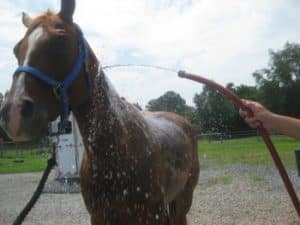 Hosing and scraping your horse
Hosing and scraping your horse- Ice, ice, ice
- Getting him out of the heat
- Fanning to promote evaporation
- In serious situations, your veterinarian will want to administer intravenous fluids
It is possible for dehydration to cause anhidrosis, at least in people. There’s absolutely no reason to keep your horse from water at any time, and especially when it’s hot. So, if your horse is exercising and it’s hot outside, please make sure you stop to allow him to drink: and often.

It is OK to hose down your hot horse!
For some reason, some horse people seem to have gotten it in their mind that if you give water to a hot horse, you’ll cause him to colic. Others somehow got the idea that if you put cold water on a hot horse, it will cause his muscles to cramp. That’s not correct. Water should not be withheld from horses and hosing down a hot horse will not cause muscle cramping Nonetheless, wrong ideas have a zombie-like quality to them; some of them just never seem to die.
Since we don’t know the cause of anhidrosis, we can’t offer a cure. We, as in veterinary science and medicine. Fortunately, although you can’t cure it, you do a whole lot to prevent problems by:
- Not working your horse on hot days
- Spraying your horse with water and scraping him, so as to help the evaporative cooling process
- Making sure he has access to plenty of cool water
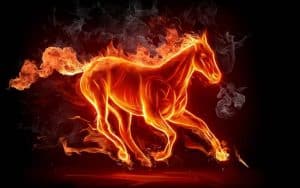 ASIDE: I have to acknowledge that I’ve been sent an internet warning that if you don’t scrape your horse after you hose him down on a hot day, the water won’t evaporate and your horse will essentially be locked in a suit of boiling water. While I absolutely recommend that you scrape your horse after hosing him down with hot water – it helps evaporative cooling work more efficiently – I can assure you that if you don’t scrape him off, your horse will not become a walking version of horse soup (if there is such a thing – I’m not going to look, either).
ASIDE: I have to acknowledge that I’ve been sent an internet warning that if you don’t scrape your horse after you hose him down on a hot day, the water won’t evaporate and your horse will essentially be locked in a suit of boiling water. While I absolutely recommend that you scrape your horse after hosing him down with hot water – it helps evaporative cooling work more efficiently – I can assure you that if you don’t scrape him off, your horse will not become a walking version of horse soup (if there is such a thing – I’m not going to look, either).
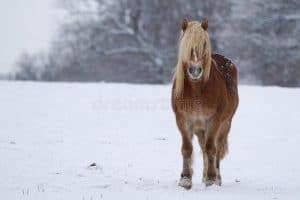
No anhidrosis here
All that said, there are some horses that are so severely affected that their problem simply can’t be controlled in the heat. For those horses, there are really only two options.
- Air conditioning
- Move the horse to a cooler climate
Unfortunately, when it comes to anhidrosis, medicine is somewhat limited by the fact that the cause is unknown. It’s devilishly difficult to fix something if you don’t know what the problem is. This, however, is apparently not a problem for folks who are not constrained by such trivialities as science, ethics, and physiology, and, thus unfettered, go about hawking their wares in the form of all sorts of over-the-counter products. These products usually have a few things in common:
 They tend to have a lot of salt in them.
They tend to have a lot of salt in them.- They tend to be very attractively packaged.
- They tend to be expensive.
- They don’t work. By the way, giving your horse beer for anhidrosis doesn’t work, either.
I mean, seriously, if anything worked to cure anhidrosis, everyone would know about it and everyone would use it. It’s not like anyone can keep secrets from the internet anymore. I suppose it’s possible that some well-meaning closet genius working diligently and alone has managed to come up with a cure for a condition that has so far eluded even the most talented and 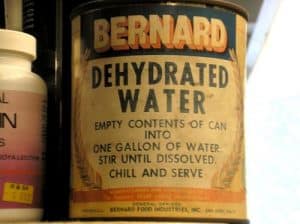 dedicated medical scientists in veterinary and human medicine, but it’s also possible that the person who seems like a bit of a nut case is, well, a bit of a nut case. Still, hope does spring eternal, and fools and their money are soon parted (which begs the question of how fools got all the money anyway). Cue the testimonials.
dedicated medical scientists in veterinary and human medicine, but it’s also possible that the person who seems like a bit of a nut case is, well, a bit of a nut case. Still, hope does spring eternal, and fools and their money are soon parted (which begs the question of how fools got all the money anyway). Cue the testimonials.
So, to sum things up, horses are especially vulnerable to anhidrosis because their bodies don’t get rid of heat efficiently. If there’s a family history of anhidrosis in your horse’s line, you need to be really careful. Fortunately, as long as you recognize that your horse isn’t sweating when it’s really hot outside, you can usually prevent serious problems from happening to your horse as a result of anhidrosis. If you’re working your horse in the heat, and he doesn’t seem to be feeling well, for goodness sake, stop working him, see if he wants something to drink, and start trying to cool him off. And, of course, don’t be afraid to call your veterinarian. We can help.


